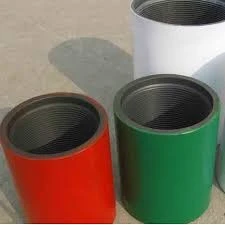- Afrikaans
- Albanian
- Amharic
- Arabic
- Armenian
- Azerbaijani
- Basque
- Belarusian
- Bengali
- Bosnian
- Bulgarian
- Catalan
- Cebuano
- Corsican
- Croatian
- Czech
- Danish
- Dutch
- English
- Esperanto
- Estonian
- Finnish
- French
- Frisian
- Galician
- Georgian
- German
- Greek
- Gujarati
- Haitian Creole
- hausa
- hawaiian
- Hebrew
- Hindi
- Miao
- Hungarian
- Icelandic
- igbo
- Indonesian
- irish
- Italian
- Japanese
- Javanese
- Kannada
- kazakh
- Khmer
- Rwandese
- Korean
- Kurdish
- Kyrgyz
- Lao
- Latin
- Latvian
- Lithuanian
- Luxembourgish
- Macedonian
- Malgashi
- Malay
- Malayalam
- Maltese
- Maori
- Marathi
- Mongolian
- Myanmar
- Nepali
- Norwegian
- Norwegian
- Occitan
- Pashto
- Persian
- Polish
- Portuguese
- Punjabi
- Romanian
- Russian
- Samoan
- Scottish Gaelic
- Serbian
- Sesotho
- Shona
- Sindhi
- Sinhala
- Slovak
- Slovenian
- Somali
- Spanish
- Sundanese
- Swahili
- Swedish
- Tagalog
- Tajik
- Tamil
- Tatar
- Telugu
- Thai
- Turkish
- Turkmen
- Ukrainian
- Urdu
- Uighur
- Uzbek
- Vietnamese
- Welsh
- Bantu
- Yiddish
- Yoruba
- Zulu
Understanding the Purpose and Use of a Bull Plug in Plumbing Systems
Understanding Bull Plugs A Comprehensive Overview
The term bull plug may initially evoke confusion, as it can pertain to different fields, from plumbing to technical jargon in sports or entertainment. However, for the sake of clarity, we will focus mainly on the plumbing and engineering context, which is where bull plugs are most commonly encountered.
What is a Bull Plug?
A bull plug is a type of pipe fitting utilized primarily in industries involving fluid transport, such as plumbing, oil and gas, and chemical processing. Its primary function is to serve as a stopper, sealing off the ends of pipes or vessels. This component is vital for maintaining system integrity and preventing leaks, which can be catastrophic in high-pressure environments.
Typically made from robust materials such as metal or high-density plastic, bull plugs come in various sizes to fit standard pipe diameters. They can be classified based on their design and application, with options available for both threaded and non-threaded installations.
Applications of Bull Plugs
1. Connection Points Bull plugs are valued for use in connection points where a complete pipe network may not be necessary at that moment. They are often used to temporarily cap off pipes during maintenance or construction. This feature helps to isolate sections of a system without needing complete disassembly. 2. Pressure Testing In testing scenarios, bull plugs allow technicians to achieve a tight seal in order to apply pressure to a section of a pipe. This is essential in ensuring the integrity of the system, as it helps locate leaks and weaknesses before the system is put into full service.
3. Safety and Compliance Safety standards in many industries ensure that any unused ports or openings in pipelines are securely sealed. Bull plugs can meet these regulatory requirements, reducing the risk of accidents or unwanted leaks.
4. Chemical Storage In chemical processing facilities, bull plugs are often utilized to seal unused outlets on tanks. This protects the integrity of the stored material, preventing contamination and potential chemical reactions.
what is bull plug

Types of Bull Plugs
While the quintessential bull plug serves straightforward functions, several variations exist that cater to specific needs
- Threaded Bull Plugs These come with threads that allow for easy installation and removal. They are commonly found in applications where frequent access is necessary. - Non-Threaded Bull Plugs Designed for applications requiring a permanent seal, these plugs fit snugly into the pipe end without the need for threading.
- Metal vs. Plastic Depending on the use, bull plugs can be made from various materials. Metal plugs are favored in high-pressure systems for their durability, while plastic plugs might be preferred in applications where weight and corrosion resistance are essential.
Installation and Maintenance Considerations
Installing a bull plug is relatively straightforward but requires attention to detail to ensure a proper seal. The male threads of a bull plug should be lubricated (if applicable) to facilitate easier installation and prevent damage. It's critical to ensure that the sealing surfaces are clean and free from debris before installation.
Regular maintenance checks on installed bull plugs are advisable, especially in systems that experience significant pressure fluctuations or temperature variations. Over time, seals can wear down, leading to leaks which can undermine the entire system's effectiveness.
Conclusion
In summary, bull plugs are essential components in various industries, providing practical solutions for sealing and protecting piping systems. Their applications sprawl across diverse sectors, underscoring their importance in maintaining safety, compliance, and efficiency. With variations in design and materials, selecting the appropriate type of bull plug can significantly impact the performance and integrity of fluid transport systems. Understanding when and where to use bull plugs can ultimately lead to more reliable systems and improved safety protocols across industrial operations. Whether you are a professional in the field or merely seeking to expand your knowledge, appreciating the value of bull plugs is crucial in the realm of plumbing and engineering.
-
Tubing Pup Joints: Essential Components for Oil and Gas OperationsNewsJul.10,2025
-
Pup Joints: Essential Components for Reliable Drilling OperationsNewsJul.10,2025
-
Pipe Couplings: Connecting Your World EfficientlyNewsJul.10,2025
-
Mastering Oilfield Operations with Quality Tubing and CasingNewsJul.10,2025
-
High-Quality Casing Couplings for Every NeedNewsJul.10,2025
-
Boost Your Drilling Efficiency with Premium Crossover Tools & Seating NipplesNewsJul.10,2025







